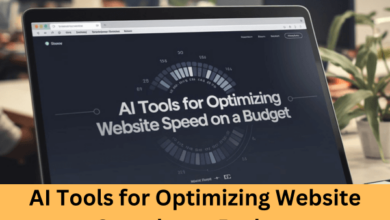Understanding Big Data at Sekolahbahasainggris.co.id

In this modern digital era, big data is becoming a source of transformation for many sectors, and education is no exception. Among the first to adopt big data in enhancing learning experiences and maximizing education outcomes is a high-tech online English language school in Indonesia known as Sekolahbahasainggris.co.id. The following article will analyze how Sekolahbahasainggris.co.id implements big data, the benefits it reaps, and what the future of education might look like with data-driven insights.
Table of Contents
What is Big Data?
Big data refers to the large volume of both structured and unstructured data pouring in every second. These can be analyzed to glean insights into better decisions and strategic business moves. The characteristics of big data are often summarized as “three Vs,” namely:
- Volume: This refers to the amount of data produced.
- Velocity: This reflects the speed at which new data is being generated and processed.
- Variety: The type of data in question-text, images, videos, and more.
Big data in education may pertain to student performance, levels of engagement, feedback systems, and much more.
How Sekolahbahasainggris.co.id Uses Big Data
Sekolahbahasainggris.co.id deploys cutting-edge analytics to gather and process user data. This is how the platform comes to understand students’ behavior, preferences, and learning patterns. Here are key ways it has used big data:
- Personal Learning Experience: Sekolahbahasainggris.co.id could provide learning materials to students in a personalized manner, fit for their learning requirements. This helps educational engagement and retention to become more effective.
- Predictive Analytics: On this platform, predictive analytics are being used to indicate which students may fall behind. From this very perspective, intervention strategies can be waged at an earlier stage so that such learners are supported.
- Curriculum Development: Big data analytics insights go towards making necessary changes and adjustments in the curriculum. Since it is now understandable where precisely the students are having most of their difficulties, educators can adjust their methodology accordingly.
Benefits of Big Data in Education
Incorporating big data into educational frameworks comes with a set of advantages:
- Improved Decision-Making: Analytics from real-time data give educators an opportunity to make educated decisions which in turn affect student learning outcomes.
- Deepening Student Engagement: With data-driven insights, instructors can create more relevant learning materials that answer to students’ needs and curiosity.
- Efficient Use of Resources: Institutions can plan the use of resources more effectively, knowing where exactly the needs lie, based on emerging trends in student performance.
- Continuous Improvement: Ongoing analysis of educational practices enables schools to continuously refine their approaches for better results.
Issues Related to Big Data Implementation
While big, there are certain challenges in the implementation of big data in education. All in all, there could be a number of issues related to the use of big data, such as:
- Data Privacy Concerns: Protecting the information about students is of paramount importance. It is important for institutions to apply regulations regarding the privacy of data.
- Integration Issues: Integration of different sets of data into a single system could be a little complicated; it needs a strong technological infrastructure.
- Skill Gaps: Educators might need training on how best to interpret and use big data analytics tools.
The Future of Education with Big Data
The future of education is interlinked and threaded with big data technology. While platforms like Sekolahbahasainggris.co.id are still innovating, we could expect the following:
- Greater Accessibility: Online learning platforms will be increasingly accessible by way of tailored content to various learners’ needs.
- AI Integration: Inefficient analysis of big data through artificial intelligence shall henceforward come up with personalized recommendations for the students.
- Big Data will enable more collaborative learning environments than ever before by matching students across geographical boundaries with either similar interests or challenges.
Conclusion
Big data is represented on Sekolahbahasainggris.co.id as a paradigm shift in the world of education in Indonesia. By the use of analytics, the online platform helps improve learning in each individual but also contributes to a better and more effective systemic approach in education. As technology is developing further, strategies that educational institutions employ in using big data to achieve better outcomes will continue changing. Embracing this change is, therefore, a factor educators will need to secure for students who might be leading in a rapidly changing world.




